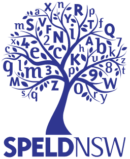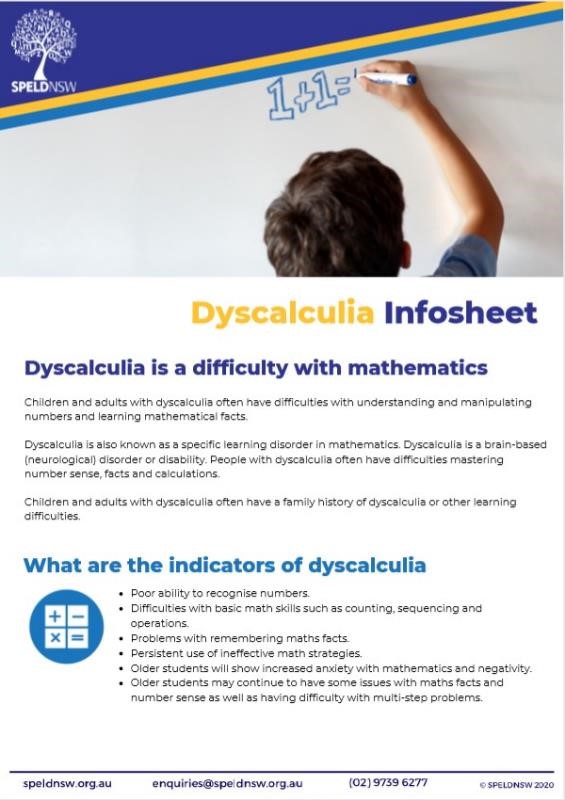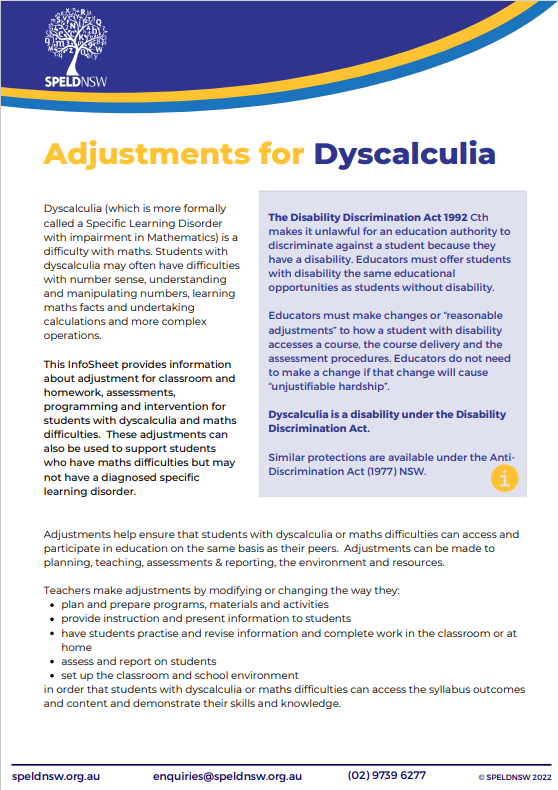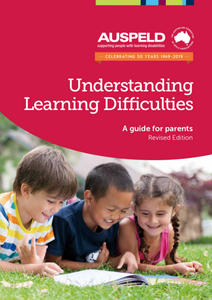Dyscalculia
What is dyscalculia?
Dyscalculia is a difficulty with maths.
Children and adults with dyscalculia often have difficulties with understanding and manipulating numbers and learning mathematical facts.
Dyscalculia is also known as a specific learning disorder in mathematics. Dyscalculia is a brain-based (neurological) disorder or disability. People with dyscalculia often have difficulties mastering number sense, facts and calculations.
How is dyscalculia identified?
Dyscalculia is generally diagnosed by a psychologist. The psychologist will investigate learning strengths and difficulties.
Before a diagnosis of a specific learning disorder in mathematics (or dyscalculia) is able to be made, it is essential that the child or adult being assessed has received at least six months of intervention focused on improving mathematics skills.
Before seeking an assessment or diagnosis of dyscalculia it is also important to check eyesight and hearing.
How do you support a person with dyscalculia?
Students with dyscalculia can improve their mathematical skills. Students benefit from explicit and structured instruction in number sense, number facts and calculations.
Students with dyscalculia will generally need lots of opportunities to practise mathematical skills and so can benefit from working with learning support teachers, systematic mathematics intervention programs or working with experienced tutors.
Students and adults with dyscalculia can also benefit from adjustments made to their school or work environments. Such adjustments include:
- use of memory aids for math facts;
- use of manipulatives to learn concepts;
- calculators.








